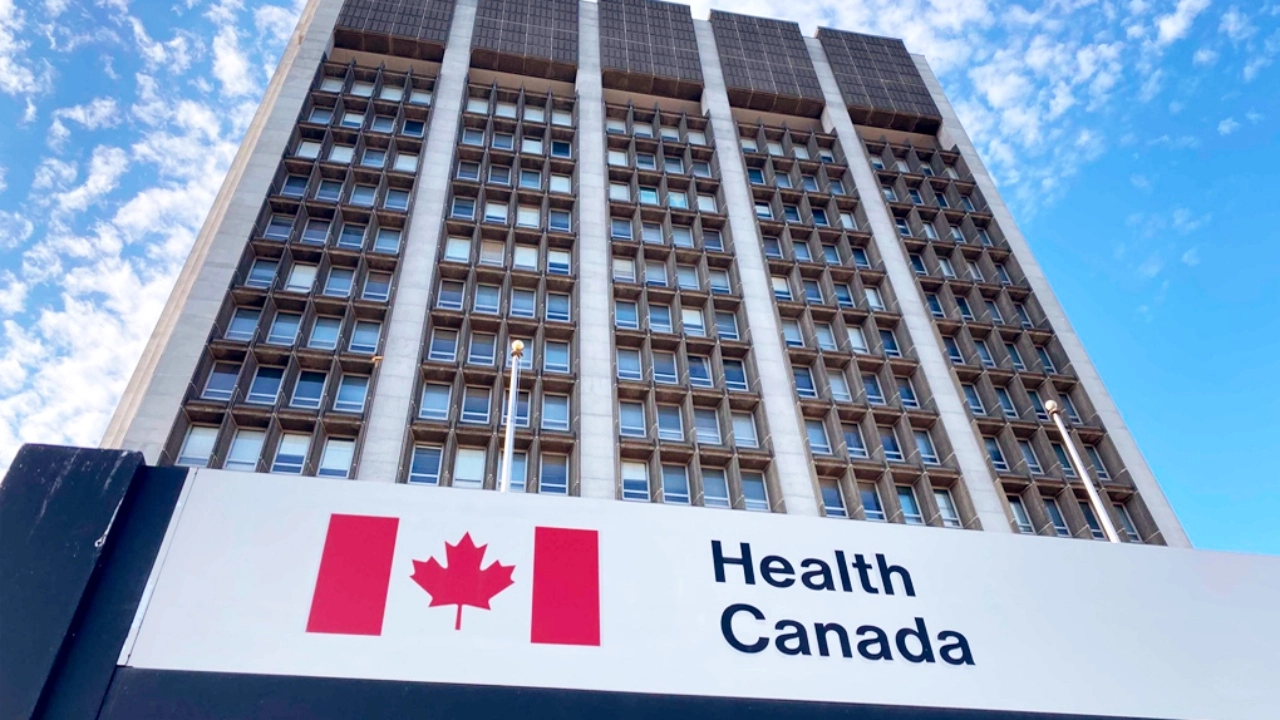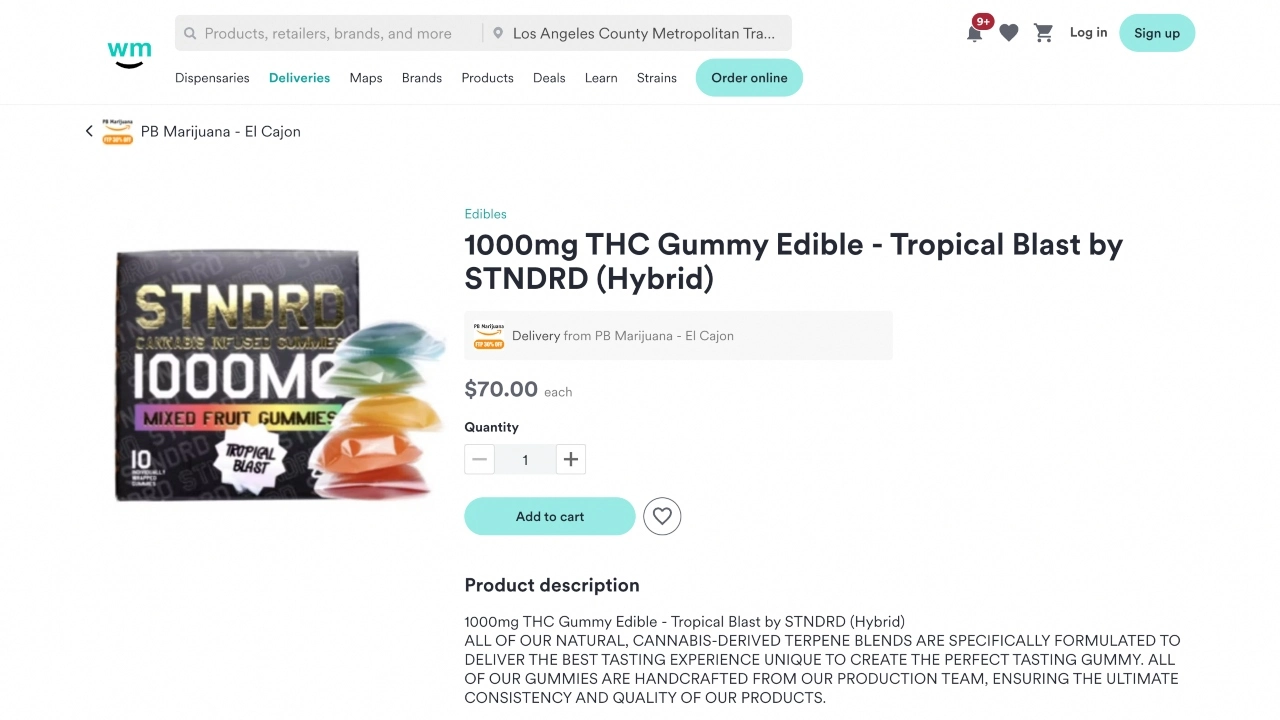(This story was updated at 6 p.m. ET with industry reaction and a market projection.)
CBD is “safe and tolerable” in healthy adults and should be available without a prescription, a panel of scientists recommended to Canada’s top health regulator Thursday.
The endorsement comes three years after Health Canada first appointed a team of experts to consider whether CBD should be sold by mainstream retailers and not limited to adult-use cannabis stores or by doctor’s recommendation.
The experts, a nine-member panel formally called the Science Advisory Committee on Health Products Containing Cannabis, concluded that CBD is “safe and tolerable for short-term use (a maximum of 30 days) at doses from 20 milligrams per day to a maximum dose of 200 mg/day.”
Health Canada is not bound by Thursday’s recommendation and has no deadline to act on it.
But the recommendation could open an enormous new market for CBD.
Paul Pedersen, CEO of Vancouver, British Columbia-based Nextleaf, which makes CBD and THC extracts for other manufacturers, estimates Canada’s current illicit CBD market to be worth about $4 billion a year.
He envisions such sales moving into Canadian grocery and drug stores alongside other dietary supplements.
“Anywhere that sells vitamins, we’re excited to be able to sell CBD in those environments,” Pedersen told MJBizDaily.
The panel noted “the desire of Canadians to access health products containing cannabis without practitioner oversight (such as from a physician or nurse practitioner)” but also called for CBD products to carry warning labels.
The panel members also noted that CBD won’t get most adults high.
“If an individual took up to the maximum dose of 200mg/day, the maximum amount of THC that is absorbed into the blood stream and reaches the brain would potentially be too low to cause appreciable psychotropic effects for most people,” they concluded.
The recommendation did not distinguish whether CBD comes from hemp or marijuana. It also did not conclude that CBD is effective
Health Canada, an agency analogous to the U.S. Food and Drug Administration, will make the final decision on whether CBD could be sold in grocery and convenience stores and other mainstream outlets.
Though CBD is commonly sold outside dispensaries in the United States, the FDA has yet to sign off on its safety, limiting adoption by major nationwide retailers such as Target and Walmart.
The FDA has been ostensibly considering CBD regulations ever since the agency was directed by Congress in 2018 to oversee how hemp products could be sold.
But the agency has repeatedly said it can’t set any regulations for over-the-counter hemp products because it doesn’t have enough data to say they’re safe.
Business leaders need reliable industry data and in-depth analysis to make smart investments and informed decisions in these uncertain economic times.
Get your 2023 MJBiz Factbook now!
Featured Inside:
- 200+ pages and 50 charts with key data points
- State-by-state guide to regulations, taxes & opportunities
- Segmented research reports for the marijuana + hemp industries
- Accurate financial forecasts + investment trends
Stay ahead of the curve and avoid costly missteps in the rapidly evolving cannabis industry.
Warning labels, education
If Health Canada follows Thursday’s unanimous recommendation by its CBD review team, the extract could be sold alongside other dietary supplements – with a few warnings.
The panel recommended that over-the-counter CBD products:
- Ask patients to first consult a doctor if they’re also taking other medications.
- Carry statements on potential interactions between CBD and other drugs or alcohol.
- Bear “prominently placed” warnings recommending CBD should not be used by individuals who are pregnant or nursing, or by people with allergies or hypersensitivity to cannabis.
- Carry dosing instructions and warnings of potential side effects, especially at high doses.
The panel suggested the Canadian health authorities take the lead on educating the public about safe CBD use.
“There is a wide range of misinformation about CBD, which poses a risk to public health,” the panelists wrote.
“To counter that, public education about non-prescription health products containing CBD would be necessary to support informed decisions by consumers.”
CBD for pets
The review panel also looked at CBD use by companion animals.
The panelists concluded that CBD is safe for dogs at low doses – less than 4 milligrams per day for every kilogram of animal weight.
But they said dogs should take CBD only for osteoarthritis and only under a veterinarian’s supervision.
“There is some promising early evidence for dogs, that CBD might work to promote calmness, treat nervousness, rashes and limit aggression, but data was not strong enough to support recommendations for use,” the concluded.
The panel added that there isn’t enough evidence that CBD is safe for cats.
“Until more safety and efficacy information becomes available, pet owners should consult a veterinarian prior to administering CBD to their pets,” the panel wrote.
Hemp Editor Kristen Nichols can be reached at kristen.nichols@mjbizdaily.com.





